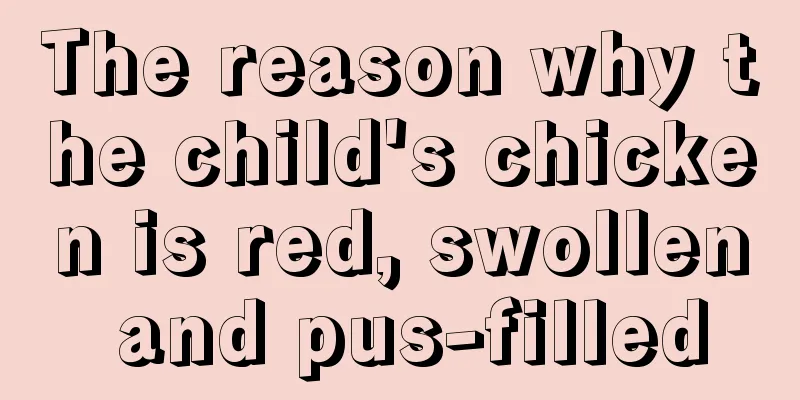Reasons why children's palms and soles sweat

|
Children are the apple of their parents’ eyes. Their every move touches their parents’ hearts. When going out, parents always hold their children tightly. But sometimes parents will find that their children's palms and soles are often wet, and the sweating on their palms and soles is very severe. Sometimes when I wake up, my socks are soaked with sweat from the night. So why does this happen to children? 1. Why does the baby always sweat? Generally speaking, sweating is a manifestation of physical weakness, and physical weakness is divided into two types: Qi deficiency and Yin deficiency. Therefore, the sweat produced by physical weakness can also be divided into two types: 1. Sweating after a little activity during the day is called "spontaneous sweating" and the sweat overflows. Traditional Chinese medicine believes that this is a case of Qi deficiency: insufficient lung Qi and weak superficial defense. 2. Sweating after falling asleep at night, that is, sweating in a quiet state, is called "night sweats". Traditional Chinese medicine believes that it is a case of Yin deficiency: insufficient Ying Yin and disharmony between Ying and Wei. Experts suggest that although the baby is not sick, excessive sweating for a long time will also have an impact on health and should be treated symptomatically. The Chinese patent medicine Yupingfeng Granules has preventive and conditioning effects, and is more effective for spontaneous sweating. It can be taken until about two weeks after the symptoms of excessive sweating are significantly relieved. 2. If your baby loves to sweat, mothers should pay attention 1. In addition to physical weakness, excessive sweating can also be caused by diseases, such as tuberculosis, rickets, hyperthyroidism, as well as endocrine and infectious diseases. 2. If you find that your child is thin, has abnormal appetite, has a low fever in the afternoon, has a dry cough, etc., you must take your child to the hospital for examination to rule out organic diseases. 3. Generally, the sweat of children under 6 years old, especially those aged 3 to 4 years old, has no special smell. If there is a strange smell, it is a pathological condition and the child must be sent to the hospital for examination and treatment 4. The sweat of a weak child tastes light, while the sweat of a healthy child tastes salty. If your sweat has an odor, it is a disease and you need to go to the hospital for treatment. Although sweating on the palms and soles of children is not a particularly serious symptom, parents should pay more attention to whether there is an odor or other accompanying symptoms. If so, they should take the child to a regular hospital for examination as soon as possible to see if the sweating on the palms and soles of children may be caused by a disease. Only with such careful attention can we ensure that our children can grow up healthy and strong. |
<<: How to check for rapid breathing in babies
>>: Specific symptoms of zinc deficiency in children
Recommend
What should I do if my child has astigmatism? Uncovering effective countermeasures
Today's parents attach great importance to th...
What is physiological jaundice in children?
Nowadays, many children will have symptoms of phy...
Is it normal for a baby girl to have leucorrhea? How to provide care
Nowadays, many newborn baby girls occasionally ha...
What to do if your child has laryngeal obstruction
Laryngeal obstruction in children is a disease th...
What should I do if my baby has a fever of 41 degrees?
A baby's cold and fever is enough to make par...
Can childhood bronchial asthma be cured?
If a child develops bronchial asthma, it will be ...
How to care for neonatal allergic eczema
Everyone is familiar with neonatal allergic eczem...
What should I do if my child has a high fever?
Colds and fevers are the most common diseases in ...
How to improve children's self-confidence
We will find that children with self-confidence a...
Why does my baby wake up crying in the middle of the night?
When the child is relatively young, every mother ...
What causes black spots in children's eyes?
Experts say that if there is no change in the bla...
How to judge whether the baby is calcium deficient
Babies have very strong growth potential, but onl...
What are some tips for getting your baby to take medicine?
Everyone will get sick. Adults often have symptom...
Causes of swollen lymph nodes in children
Many people have a deep understanding of the dise...
Symptoms of delayed physical development in infants
Physical retardation is a manifestation of childh...









